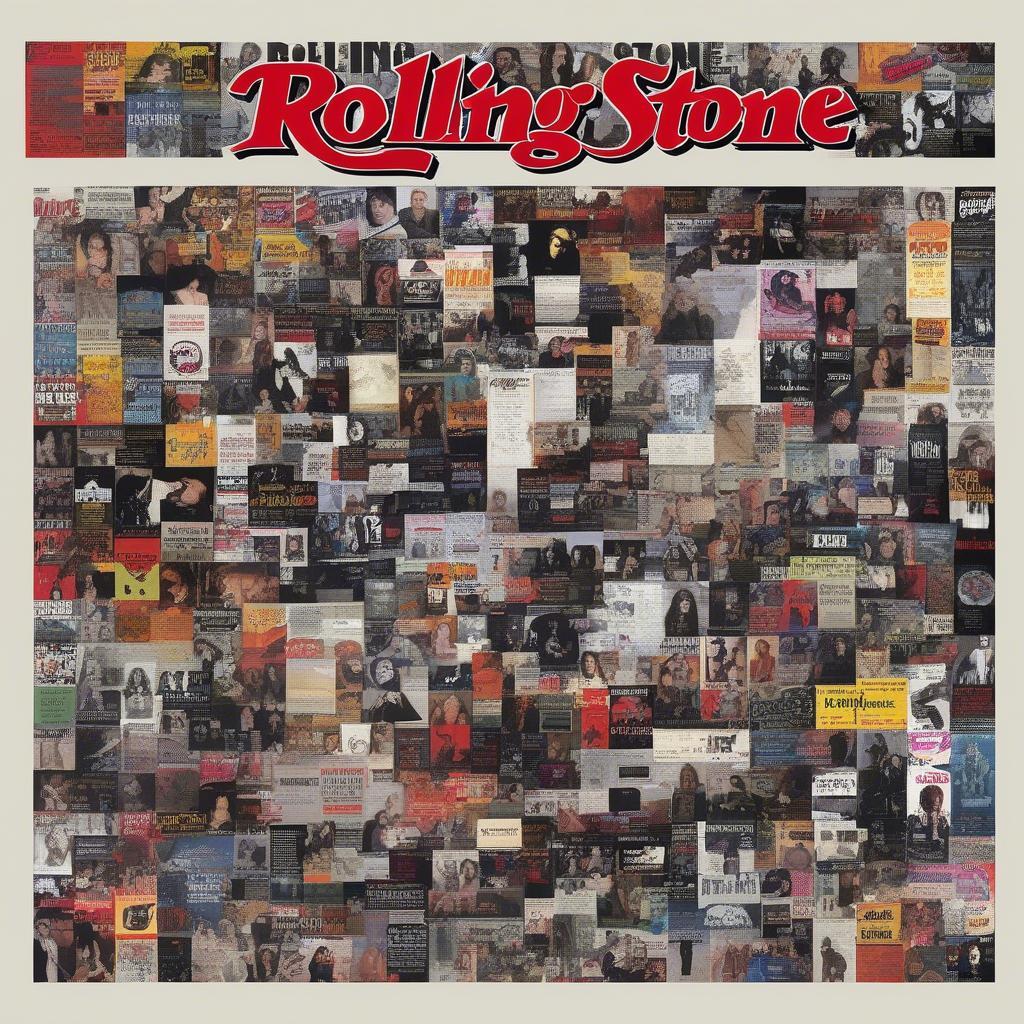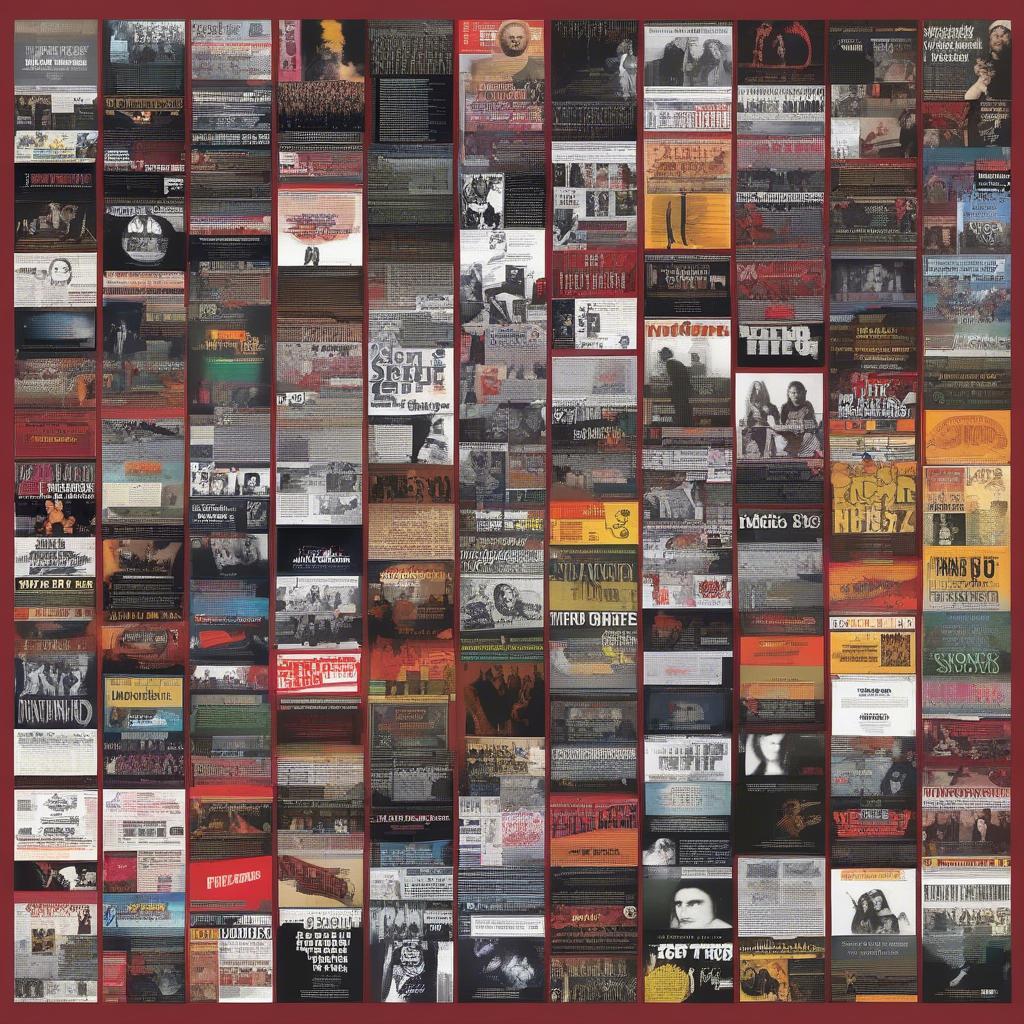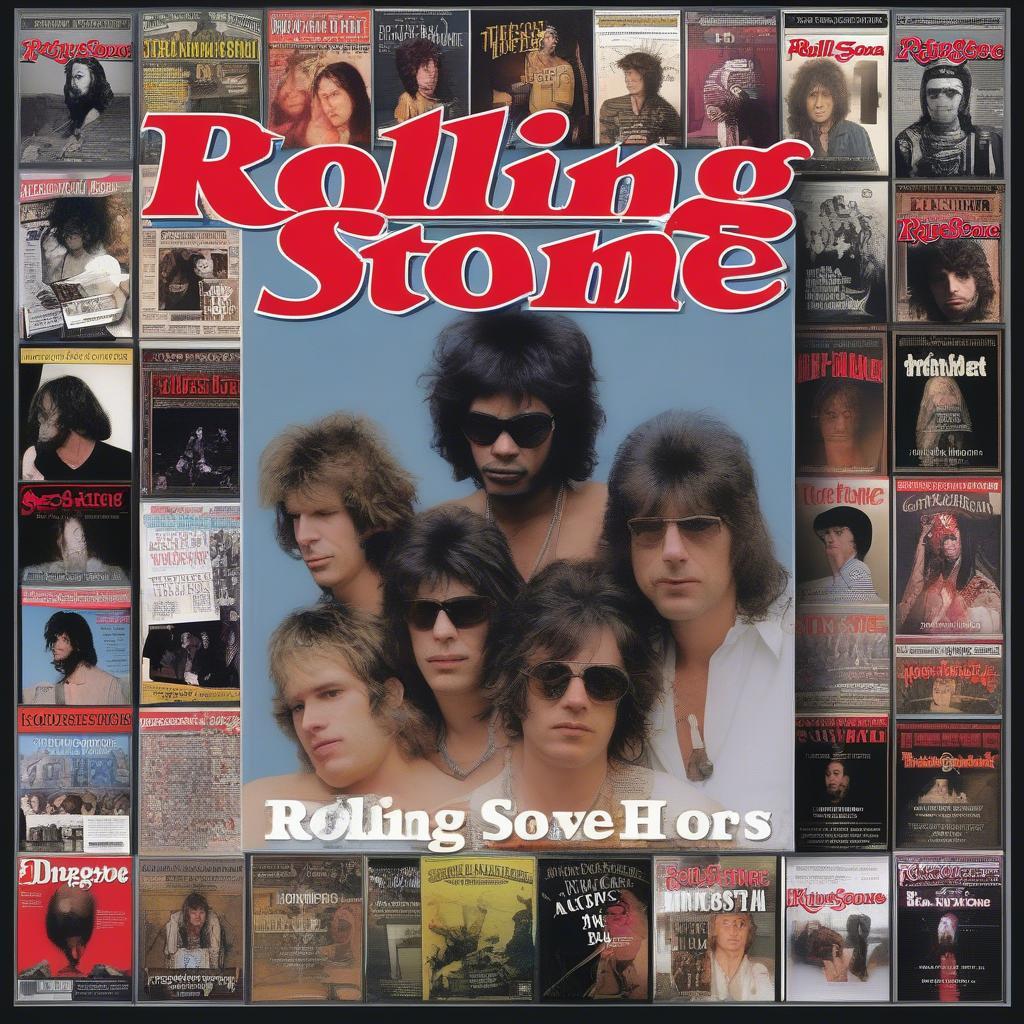The Rolling Stone Top 500 Rock Songs list is a cornerstone of rock music history, sparking debate and celebration since its inception. This article explores the list’s impact, highlights some iconic entries, and delves into the criteria behind these legendary rankings. 2004 top 500 songs
Deconstructing the Rolling Stone Top 500
The list, first compiled in 2004, reflects the magazine’s perspective on the greatest rock songs of all time. It’s a mix of classic rock anthems, influential tracks, and groundbreaking artists. The selection process involved a panel of musicians, critics, and industry figures, weighing factors like songwriting, cultural impact, and innovation. This collaborative approach aimed to create a comprehensive and representative snapshot of rock’s evolution.
What makes a song “rock”? The Rolling Stone list considers a broad spectrum, encompassing subgenres from blues rock to punk, grunge, and beyond. It acknowledges rock’s fluid boundaries, incorporating influences from folk, blues, and country. This inclusivity is part of what makes the list so compelling.
 Rolling Stone Top 500 Album Cover
Rolling Stone Top 500 Album Cover
The Titans of Rock: Exploring the Top 10
The top 10 of the Rolling Stone Top 500 Rock Songs list is a who’s who of rock royalty. Bob Dylan, The Beatles, and The Rolling Stones dominate, showcasing their profound impact on the genre. Tracks like “Like a Rolling Stone” and “Satisfaction” are more than just songs; they’re cultural touchstones. These songs shaped generations and continue to resonate with listeners today.
What Makes These Songs So Iconic?
Beyond their musical merit, these songs often captured the zeitgeist of their era. They became anthems for social change, expressions of rebellion, or simply reflections of universal human experiences. The raw emotion and powerful storytelling within these tracks cemented their place in history.
“The impact of these songs extends far beyond the music itself,” says renowned music historian Dr. Alan Richards. “They became part of the cultural fabric, influencing fashion, language, and social movements.”
 Top 10 Songs From Rolling Stone 500 List
Top 10 Songs From Rolling Stone 500 List
Beyond the Charts: The Legacy of the Rolling Stone Top 500
The list isn’t without its controversies. Debates about omissions, rankings, and genre classifications continue to rage among fans and critics. However, this discourse is a testament to the list’s enduring relevance. It keeps the conversation about rock music alive and encourages exploration of the genre’s vast landscape.
Why is the Rolling Stone List Still Relevant Today?
In the age of streaming and personalized playlists, the Rolling Stone Top 500 Rock Songs list serves as a valuable guide. It introduces listeners to classics, deep cuts, and influential artists they might otherwise miss. It’s a reminder of the power of rock music to connect, inspire, and challenge.
“The list provides a framework for understanding rock’s evolution,” explains music journalist Sarah Chen. “It’s a starting point for discovering the rich history and diverse sounds that define the genre.”
Conclusion: The Rolling Stone Top 500 Rock Songs Endures
The Rolling Stone Top 500 Rock Songs list remains a vital document of rock’s enduring legacy. It sparks debate, inspires discovery, and celebrates the artists who shaped the genre. While tastes may evolve and new sounds emerge, the influence of these iconic songs continues to resonate. rollingstone top songs
 Rolling Stone Magazine's Legacy in Music Journalism
Rolling Stone Magazine's Legacy in Music Journalism
rolling stones magazine top 500 songs of all time
500 greatest songs of all time top 20
FAQ
- When was the Rolling Stone Top 500 Rock Songs list first published? (2004)
- Who contributed to the creation of the list? (Musicians, critics, and industry figures)
- What criteria were used to select the songs? (Songwriting, cultural impact, and innovation)
- What genres are included in the list? (Various rock subgenres, including blues rock, punk, and grunge)
- Why is the list still relevant today? (It serves as a guide for discovering classic and influential rock music)
For any assistance, please contact us at Email: [email protected] or visit our office at Constellation Blvd, Suite 100, Los Angeles, CA 90067, USA. We have a 24/7 customer support team.
